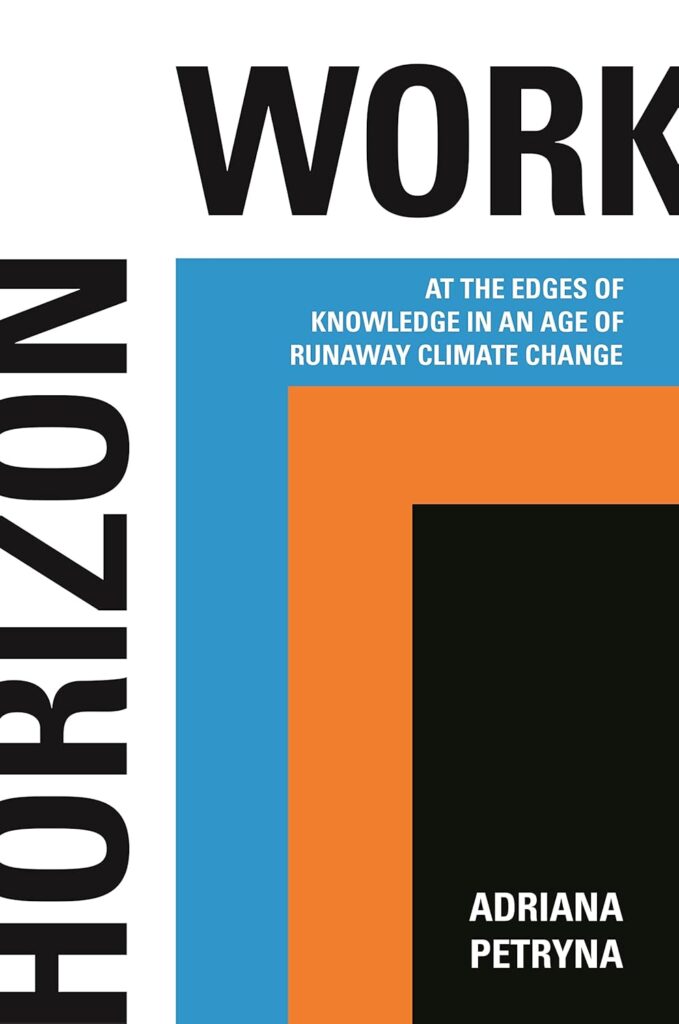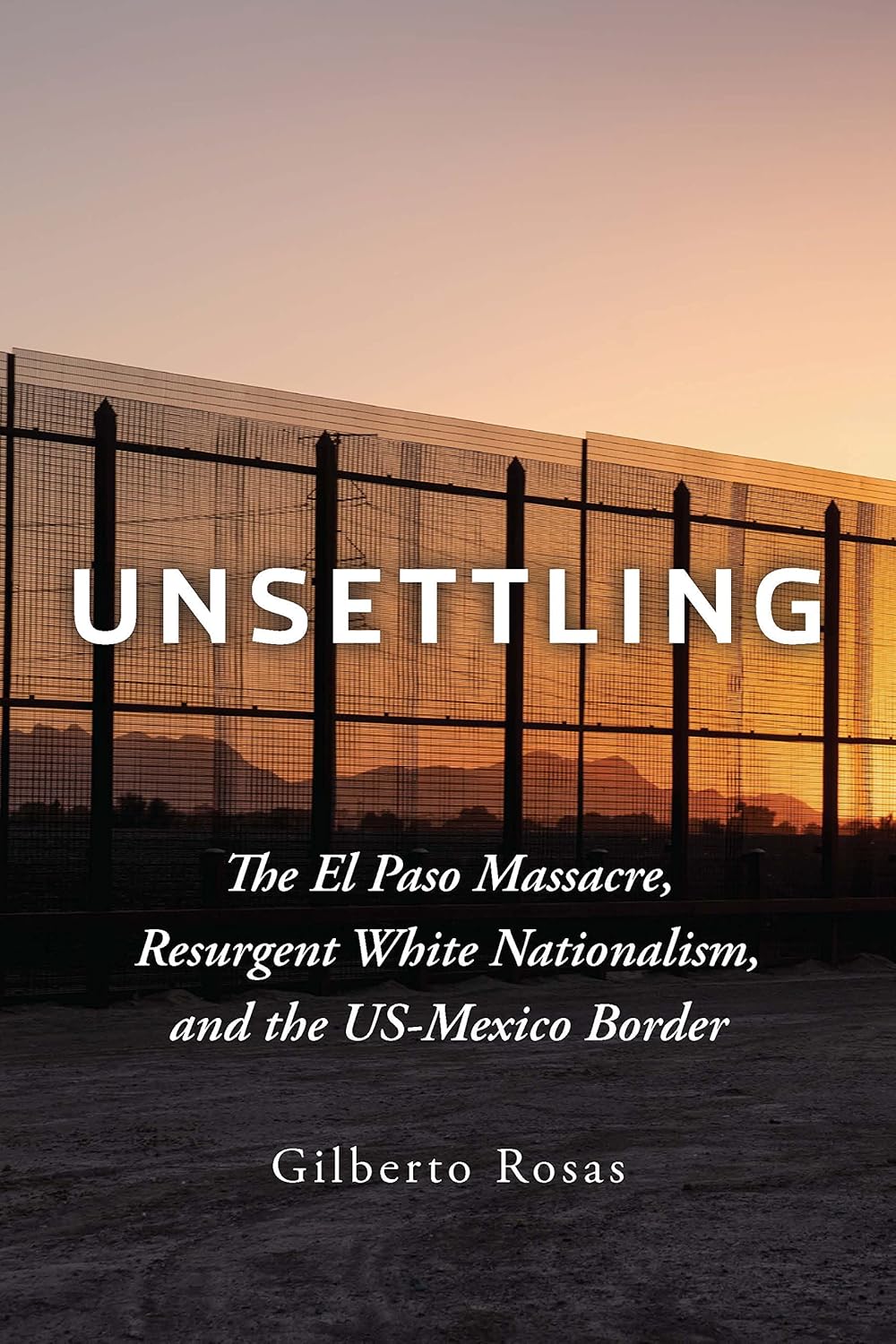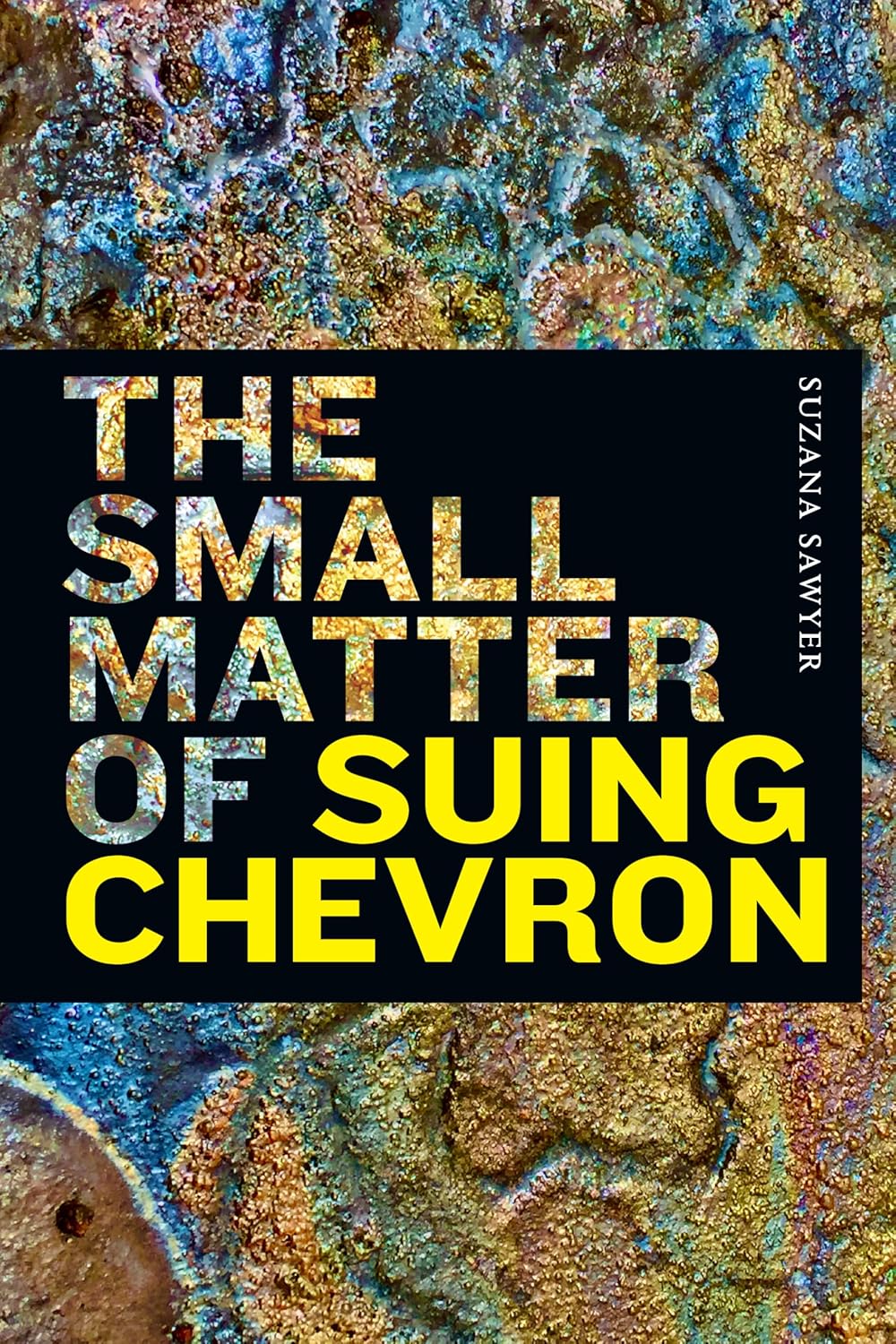AES is delighted to announce this year’s Senior Book Prize joint winners, Adriana Petryna and Suzana Sawyer, and honorable mention, Gilberto Rosas.
2024 Prize Committee: Daromir Rudnyckyj (University of Victoria, chair), Sameena Mulla (Emory U), and Brandon Hunter-Pazzara (Georgetown U)
 Horizon Work: At the Edges of Knowledge in an Age of Runaway Climate Change
Horizon Work: At the Edges of Knowledge in an Age of Runaway Climate Change
by Adriana Petryna
This deeply engaging and lucidly written work is a ground-breaking exploration of the existential, conceptual, and methodological challenges posed by runaway climate change. Petryna’s considerate analysis and vivid ethnographic account of the everyday efforts of firefighters, wildfire scientists, fire managers, and Native American forest protectors serves as an urgent call for interdisciplinary, collaborative approaches to understanding and mitigating climate impacts. Horizon Work adroitly merges empirical research with theoretical innovation, presenting the innovative concept of “horizoning” as a critical analytical tool for reimagining the possibilities of anthropological engagement with climate crises. Horizon Work calls on anthropologists to reassess our methodologies, ethical responsibilities, and the potential for collaborative resilience in the face of unprecedented environmental challenges. It is an exemplary model of anthropological scholarship that is both deeply informed by the latest developments in the interdisciplinary field of climate studies but also accessible to a broad public audience. Petryna’s writing is exceptionally clear, making complex theoretical and scientific concepts and the reality of climate change comprehensible to readers inside and outside academia.
This inspirational book also powerfully pushes back against catastrophic thinking and end-of the-world panic in the face of accelerating climate change. While addressing the irreversible dynamic of climate change and the destructive impact of colonial violence on human capacity to respond to climate change, Petryna suggests a positive trajectory towards safeguarding the planet for future generations. She argues that doing so requires continuous efforts at horizoning, or a hopeful human action mobilized by “horizons of actionable knowledge…even when emerging circumstances refuse ‘solutions’ of any kind.” Horizon Work incisively highlights that efforts to preempt catastrophic conditions require a recalibration of knowledge that already exists, but also imaginative creativity. The book makes a landmark contribution to anthropology, but its reach transcends parochial disciplinary contributions by providing insights useful to policymakers, environmental activists, and communities grappling with the unpredictable dynamics of climate change.
The Small Matter of Suing Chevron
by Suzana Sawyer
This exceptional ethnography offers a brilliant and sophisticated analysis of the interplay between law and power, and their complex reactions within and across increasingly international and transnational legal systems. Told through a critical accounting of the decades- long litigation brought against Chevron by Indigenous communities in the Ecuadorian Amazon for oil contamination on their land, Sawyer reveals law’s open-endedness, its ability to move and shift in new contexts, and its limits as a vehicle to bring about justice and hold the powerful responsible for their actions. What makes Sawyer’s ethnography so compelling is her ability to hold the question of justice to the side, and instead carefully guide her reader through the legal mechanisms, techniques, and strategies that shaped this epic legal controversy. From this vantage point, Sawyer’s analogizing of law to chemical reactions becomes a poetic and ingenious way to describe law’s ability to be reshaped and influenced by the presence of dominant interests, epistemologies, and historical legacies. Sawyer’s key theoretical contribution is that law is not a fixed or inert substance but a reactive field where corporate interests and social justice movements collide, often producing outcomes that are far from what is theoretically expected in a neutral legal system. The implication of this provocative and crucial insight is to cast doubt on law’s claim to stability, and instead to think of law as a volatile mixture, susceptible to the pressures exerted by those with economic power. The Small Matter of Suing Chevron is a tremendous example of critical ethnography’s power to generate fresh facts and new perspectives to enduring, yet increasingly urgent, debates about law’s relationship to justice.
Beyond its contributions to legal anthropology and critical ethnography, Sawyer submits to legal practitioners, human rights defenders, and others who place their faith in the law with a provocation on the efficacy of current legal frameworks to address global challenges and resolve environmental injustice. This is not a rhetorical argument, but one Sawyer makes through rich and detailed examination of the litigation and its complex evidentiary record. Such insights are especially relevant given broader efforts to mitigate the climate crisis through various forms of law (treaty, statute, regulation etc.), or to identify the absence of law as a culprit for the presence of environmental harm. While the ultimate outcome of the Chevron litigation underscores law’s limits, what might surprise readers is that The Small Matter of Suing Chevron is not a book about despair. It is instead a masterful tour de force that joins a long list of legal ethnographies encouraging their open-minded readers to consider the possibility that justice might reside outside of the courthouse.

Unsettling: The El Paso Massacre, Resurgent White Nationalism, and the US-Mexico Border
by Gilberto Rosas
In this searingly incisive work, Gilberto Rosas thinks through the ways in which the US-Mexico border has become the site of intense settler violence and dispossession. This meditation begins with the events of the 2019 mass shooting in El Paso, Texas, which Rosas argues is a consequence of the cultivation of white nationalism that is manufactured through the “crisis” of the border. While Rosas shows how the border is weaponized through policy, family separation, torture and murder, he also compels readers to consider that border violence is far from inevitable. Throughout the work, Rosas models a rigorous ethical standard, introducing the voices of his interlocutors through testimonios and statements that are given equal standing as his own theory and description. Reflexivity is invoked in a sincere and exacting fashion, drawing out the dangerous potential for complicity with border regimes.
Triangulating between a past when the boundary was more porous and could be traversed as a means of sustaining rich multi-national lives, and the present in which the border is heavily regulated, Rosas reminds us that the border is a marker of stolen land. Unsettling challenges readers to think about the on-going violences of settler colonialism, painstakingly crafting an anthropological analysis that develops critiques of settler colonialism and racism that contribute to the rich ethnography. White supremacy appears in the work with a refreshing specificity; this specificity gives way to an account of the intensification of lethality. While Rosas’s ethnography visits familiar sites within border studies, including asylum courts, immigration detention centers, non-profit organizations, and towns and homes on both sides of the border, he trains his attention in surprising and, yes, unsettling, ways.




